Art Lingual
|
How to make a home American theatre makers Sierra and Olivia founded Art Lingual and believe in support for immigrants by immigrants. Based in London, their most recent project is called How to make a home. “This workshop is for anyone, refugees and UK citizens alike,” says Olivia. “It is a story line, in which participants decide about the direction of the play. When people come in, we divide them into two groups, representing two different islands. They then to go on to make their individual homes, with the different fabrics and objects that we provide.” This first bit of the workshop is mostly fun and easy-going. “We reflect on what people need to feel at home, both individually and as a community. But the two groups also start competing. We ask them what is different about the homes on the other island. And there is a game in which participants need to spread rumours about those of the other community.” A need for relocation
At one point in the workshop, a natural disaster happens. “We work with an open end. It is up to the participants to decide what to do. We only ever use the word ‘relocation’ as a possibility, but it is up to the group to shape the process,” says Olivia. What happens next, is really interesting, says Sierra. “We had one participant voicing his concerns. ‘I don’t know if I can trust these others,’ he said. ‘They have such a different way of life.” Participants have to come up with solutions themselves. This is the advantage of theatre, says Olivia. “People create their own character. They can say whatever they like and try out different options.” Sierra continues: “One participant suggested to house the asylum seekers on a separate part of the island. But the people who had to flee their island, were against this. “When we lose our land, we need access to your resources. We want to contribute and be fully welcomed and integrated.” During the workshop, participants get the chance to discuss their fears and values. “It is so easy to get wrapped up in your own experiences and to live in communities where you see your own opinions reflected,” says Sierra. “Through performative theatre, people can explore different scenarios,” adds Olivia. “This opens up new dialogues.” As such, Art Lingual uses theatre as a tool to talk.
0 Comments
February was a jam packed month, with the Refugee Week Conference and our first Express Yourself workshop without the creators Nick, Tiffany, and Franzi. Back in 2016, Art Lingual teamed up with the heads of the UCL STAR (Student Action for Refugees) chapter to help run a drama and debate workshop called Express Yourself. Our first workshop with them was absolutely fantastic, and we stayed with the project in order to help make sure the programme remained fruitful and sustainable. As with all things at university, the leaders of UCL STAR changed as students went off to graduate and work elsewhere. As the only group of people still around that had actually ran the workshop before, we needed to work with the new leaders to assist them with the brilliant workshop Nick had left behind. This wasn't without a few of Art Lingual's classic edits, such as the addition of contingency plans. One of the biggest hurdles with these workshops, as it is with any ESL focused workshop, is that you can get a wide range of English language skills. With our MA Applied Theatre backgrounds, we are always aware of the need for accessibility. The need to engage every participant, on some level. So, we took Nick's great plan and we added a few contingencies, variations of the activities that could be used with those whose English is still quite basic. After all, these workshops are all about improving your english, no matter what level you're at! With that in mind, we helped run Nick's Express Yourself workshop, with a focus on drama. And it went brilliantly. We had a few bumps along the way, mainly participants showing up quite late. But that was because people kept getting lost! If you've ever been to the UCL campus, you know how confusing and large it all is. The workshop went through a series of drama games that would require using your English language skills. Some personal highlights for me: Every workshop we run gives us new insight and teaches us valuable lessons. Our workshop with UCL STAR in February was not only enlightening but also, just plain fun. And that's the best kind of learning.
We hope everyone involved had as much fun as we did and we can't wait to see what they all do next! - Sierra Last month, we had the amazing opportunity to take part in the Refugee Week Conference 2017 at Amnesty International UK. We at Art Lingual were excited to rally behind such an important event!
The conference is a preemptive event leading up to Refugee Week, the UK’s largest festival celebrating the contributions of refugees and promoting further understanding of why people seek sanctuary. The festival takes place every year in the week around World Refugee Day, 20th June. This year’s festival will take place 19-25 June 2017 here in the UK, with the theme being ‘Different Pasts, Shared Future’. The day consisted of a stimulating mix of workshops, performances and short, inspiring presentations to help us prepare for Refugee Week. We were intrigued to chat with artists and organisations who create work similar to our own as well as the different perspectives and tools used in their art. We were welcomed to the event by the Chair of Refugee Week & CEO of Refugee Council, Maurice Wren, as well as our hosts for the day’s event, Counterpoint Arts. We were then presented with a series of ‘offers’: unique creations, installations and events commissioned by Counterpoint Arts that centred around these themes, that we could pull from for our own events for Refugee Week. These included arts projects, films that could be shown, theatre pieces and even music that could be performed. After lunch, we got to hear from groups from various parts of the UK about their past Refugee Week events, what they’re planning for this year and how we could get involved. Even some tips on how to market your own event! One of the many fun things about the day was getting to participate in the art installations set up throughout the space. One of which was Gil Mualem-Doron’s The New Union Flag, which you can see Sierra and I pictured in front of in this blog post. The project is his proposal for an alternative flag for the UK, one which incorporates designs from ‘former colonised communities and various ethnic and national groups that live in the UK today.’ The boats on the flag are also symbols of the migration of people to and from the UK throughout history. On the day, all he asked is that we have our picture taken in front of it to show support, and share it through our networks and social media channels. The flag is available for installation and Gil offers workshops about the flag, too. It is currently on display this week (17-19 March) at Tate Exchange for the Who Are We? event. The event is free and looks at exploring identity, belonging, migration and citizenship through participatory arts. More info is here: http://www.tate.org.uk/whats-on/tate-modern/workshop/tate-exchange/who-are-we. You can also check out more about Gil’s alternative flag here: http://www.a4community.org. Other helpful parts of the event were the ‘washing line’ activities. These were some of the many opportunities we had to network with other artists, in groups, sharing ideas about how we could go about planning events. We met quite a few interesting people from different charities working here and abroad, British Council and even the British Red Cross, about what they are planning for this year’s events. It really got our creative inspiration flowing, and made us at Art Lingual even more excited to plan for this event. We’re currently working an arts project to launch for Refugee Week 2017. Plans are underway, and with the help and resources of the Refugee Week team and Counterpoint Arts, it’s sure to be an engaging and thoughtful event. We’ll have more details soon, so stay tuned! - Olivia To close out 2016, we headed back to SOAS University of London for a second run of our introduction workshop and it's safe to say it was a great success! Unfortunately, Olivia couldn't join us for this workshop, so we had our good friend Rebecca Hayes Laughton co-facilitate. Our other friend, Lauren Nathan-Lane (co-artistic director of the company Unblurred Lines) was our photographer, and we are so grateful to both Rebecca and Lauren for helping Art Lingual make it's second workshop a successful and informative. We started out the session with many fun and interactive games, and participants went from impersonating penguins in the arctic, to telling stories about home through only sounds and gestures. For the second half of the session, we went around the circle and tried to list as many vulnerable groups as we could. We then chose scenarios of vulnerable groups and each pair of participants was asked to come up with a scaffolded workshop in order to work with these groups. Here is a photo of one of the workshops a pair created (we think this has the makings of a fantastic workshop! And who would have thought to use the 'story of your name' activity as an end game?): To close out our workshop, we had a hand checkout. This is where we asked each participant to write on each finger something they found: new, old, enjoyable, challenging, and exciting. The results were great and we got some amazing qualitative feedback. Here is a sample of a participant's feedback: After all the work we've put into creating this workshops, we are so proud of the work the participants have created in just under 2 hours. We hope to come back to SOAS in the new year and launch our new facilitator training scheme. Next up, a workshop on Legislative Theatre!
Until next year, we are signing off for the holidays, so have a safe and wonderful holiday season. Here's to 2017, may it be even bigger and better than before. - Sierra The premise was to offer a two hour workshop that taught BA and MA Applied Diplomacy students on how to use theatre to work with vulnerable groups. Big challenge, I know, and impossible to fully meet in two hours; trust me, I know. People have dedicated whole courses, whole degrees to this idea. But Art Lingual was going to take a crack at it anyways. After all, were we really going to pass on the opportunity to work with SOAS University? Not a chance.
A week and a half ago, Olivia and I ran our Vulnerable Groups Training Course workshop with several students at SOAS University of London. With our snazzy Prezi in hand, and our determination to get as much information as possible across in only an hour and a half, we were ready. Our workshop started out with a presentation, outlining exactly what Art Lingual considers to be the definition of 'vulnerable groups'. We defined them as groups of people that are at risk of exclusion due to threats in their environment or their personal circumstances. While there are many categories of vulnerable groups, Art Lingual directly focuses on the marginalisation that comes from being an immigrant. We then discussed, for all those academics in the crowd, our methodology as a company, largely based on Paulo Freire's 'Pedagogy of the Oppressed' and his theory of dialogic education. It is our firm belief that the groups we work with need their own autonomy and we are merely there to facilitate that process. In essence to allow participants to become ‘beings for themselves' (Freire 1970 pg. 74). But aside from our academic rigor, the rest of the workshop featured many theatre games that we use in our own workshops with international students and refugees. We then asked the participants to create a scaffolded workshop based off of a vulnerable group scenario, using any of the theatre games we had played. We had a great time working with these students and they came up with some really considerate and creative workshops, focusing on accessibility and safeguarding. Even better, we are excited that SOAS has invited us back to continue our work with these students, possibly developing the course into areas unexplored by them before... can anyone say Forum Theatre? Legislative Theatre? The possibilities are endless, and so are the ways in which to work with vulnerable groups. We only offer one method based in one field, but we hope that everyone who participated took something useful away. We know we did! And here's to the future work we do with SOAS. We are excited and pumped up. Bring on 2017 with Art Lingual! - Sierra |
AuthorsOlivia & Sierra Categories |
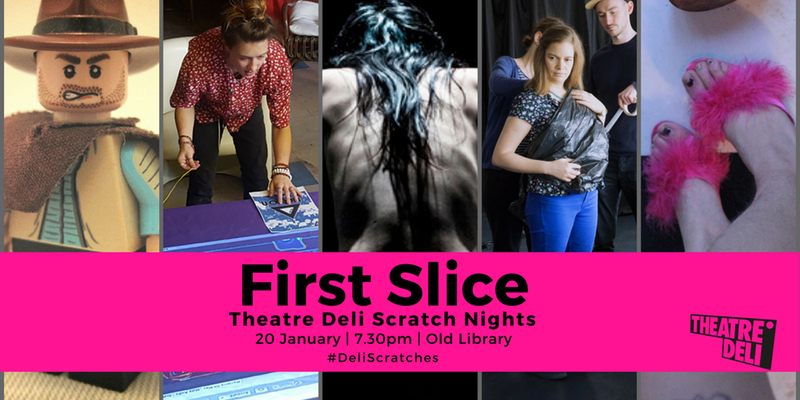
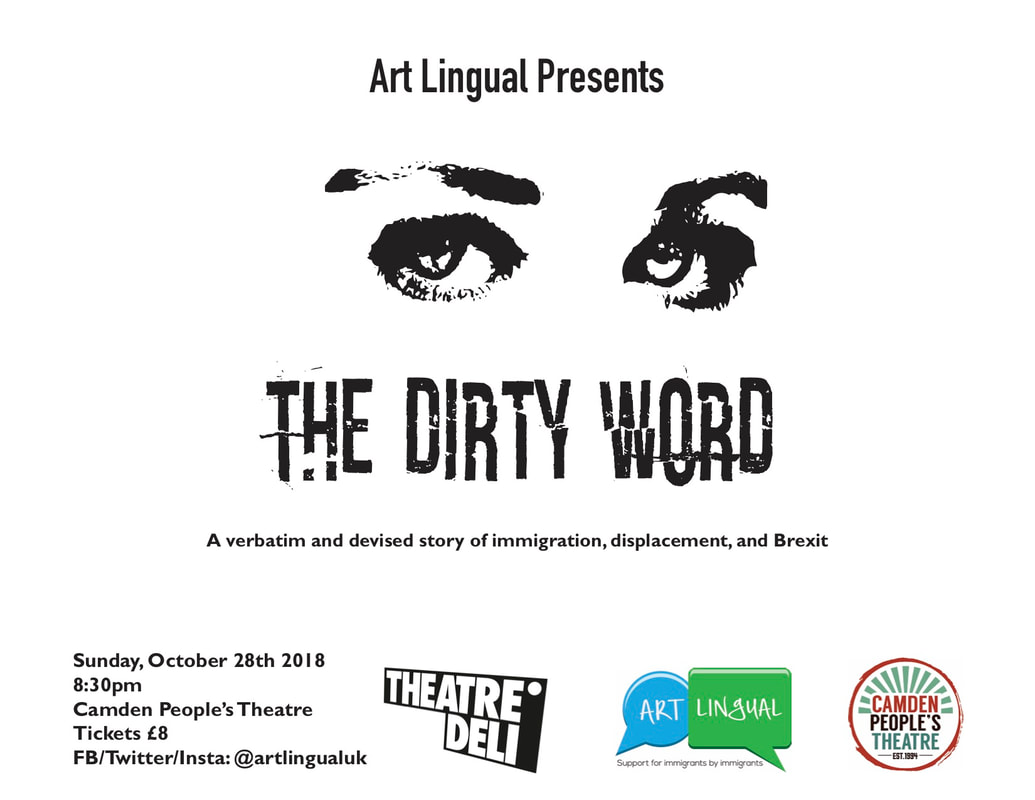
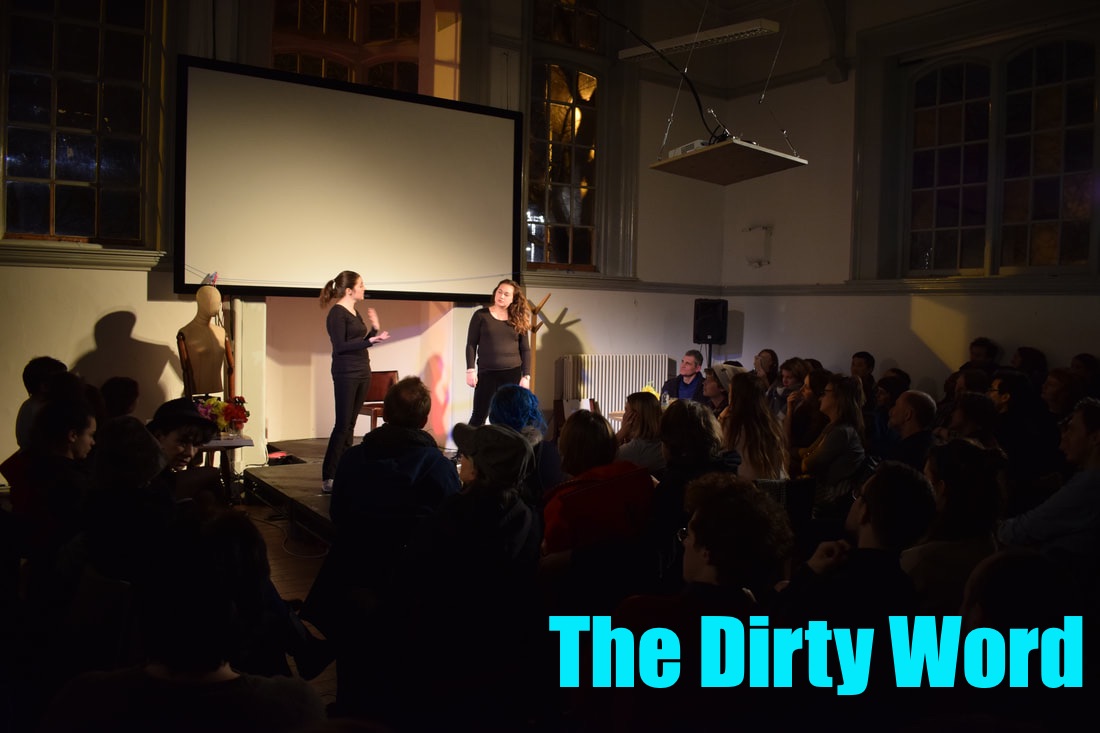
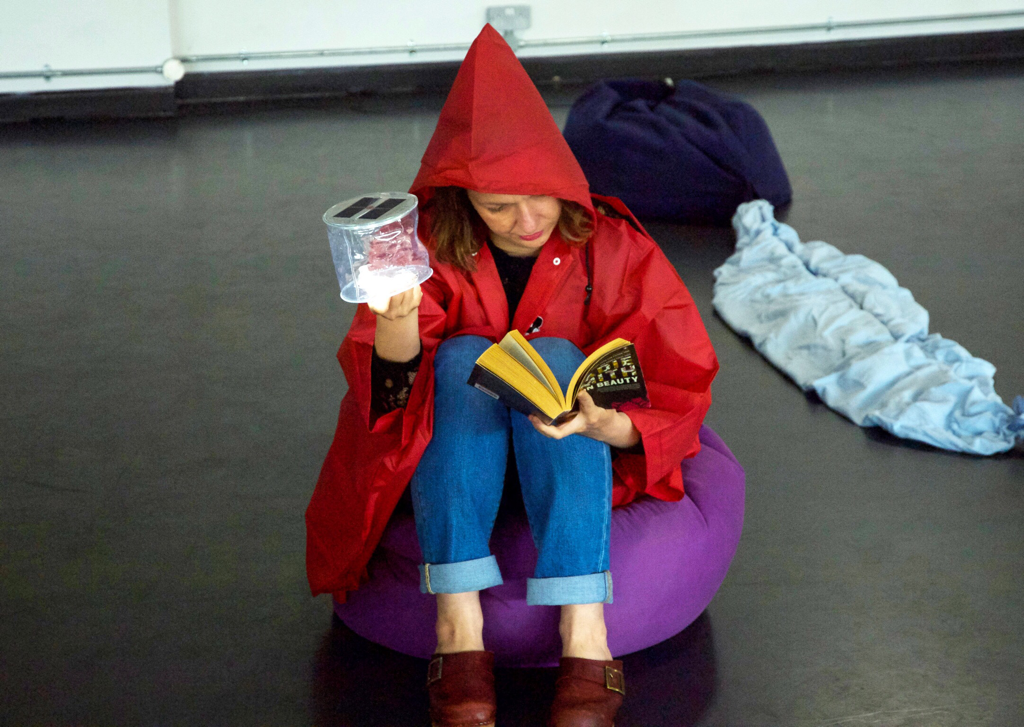
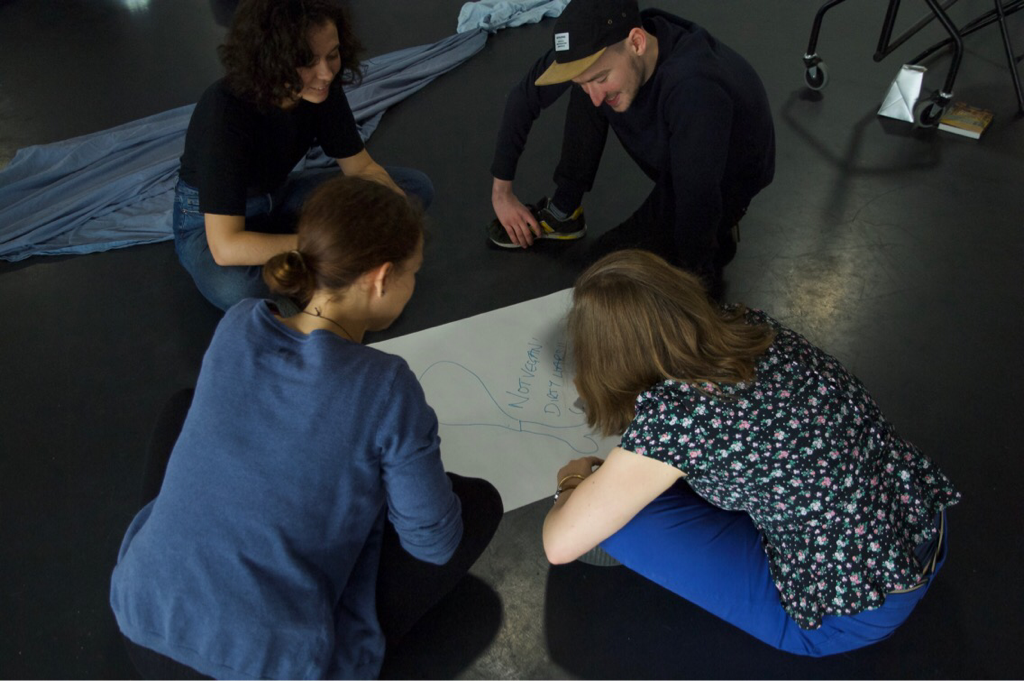
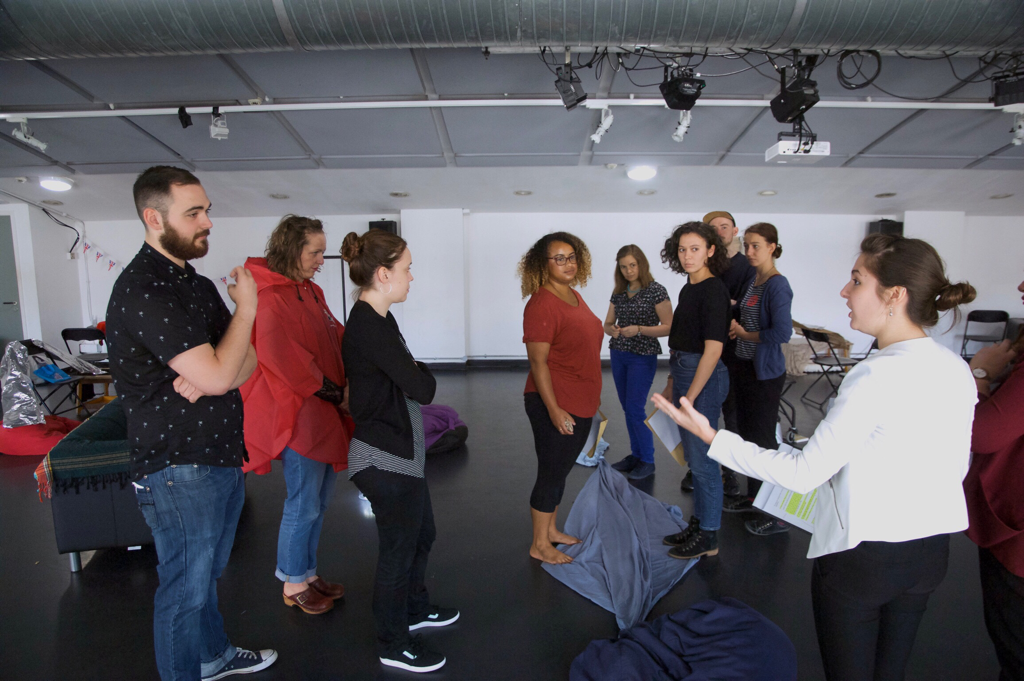
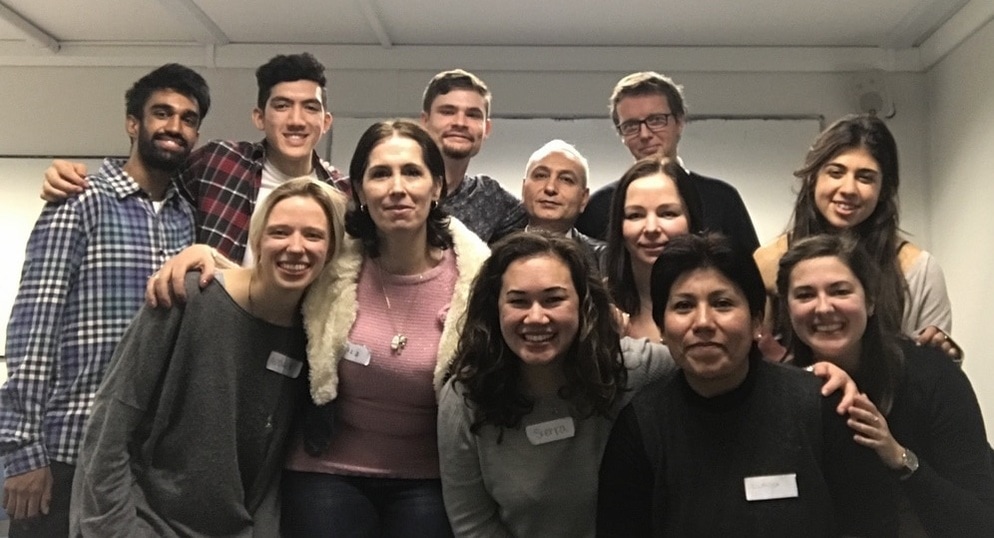
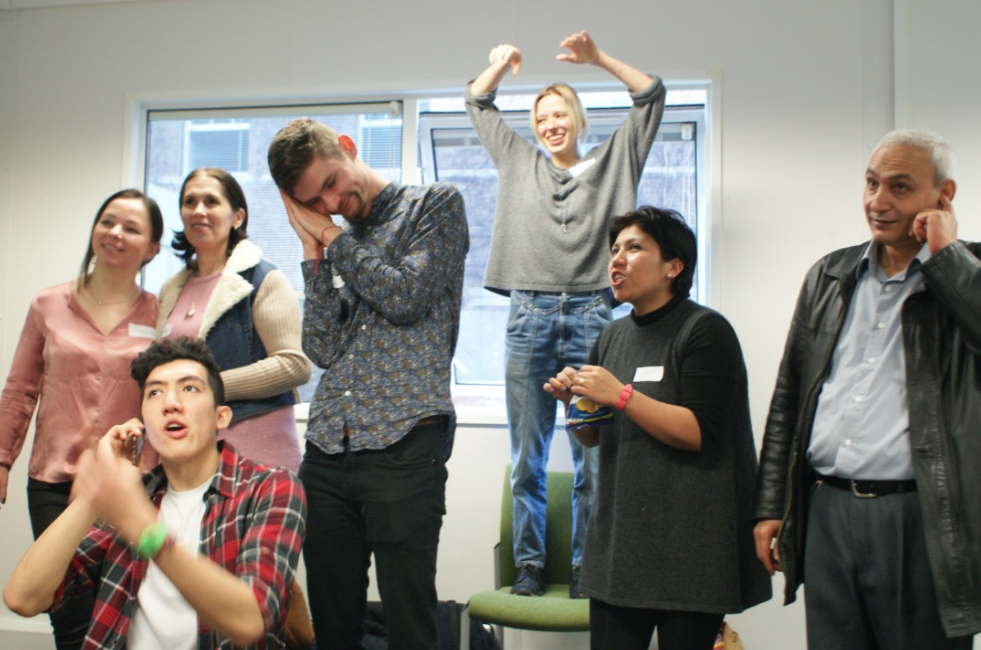
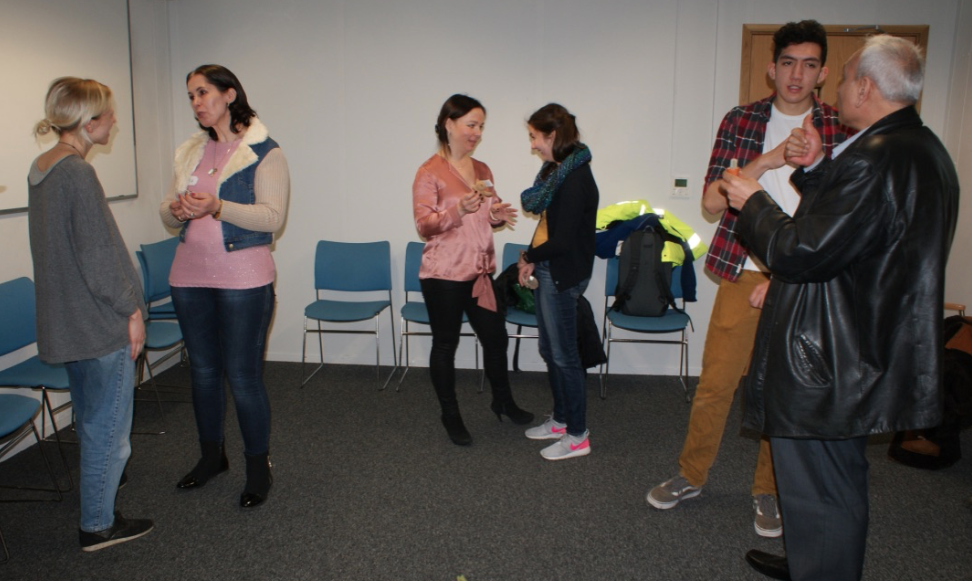
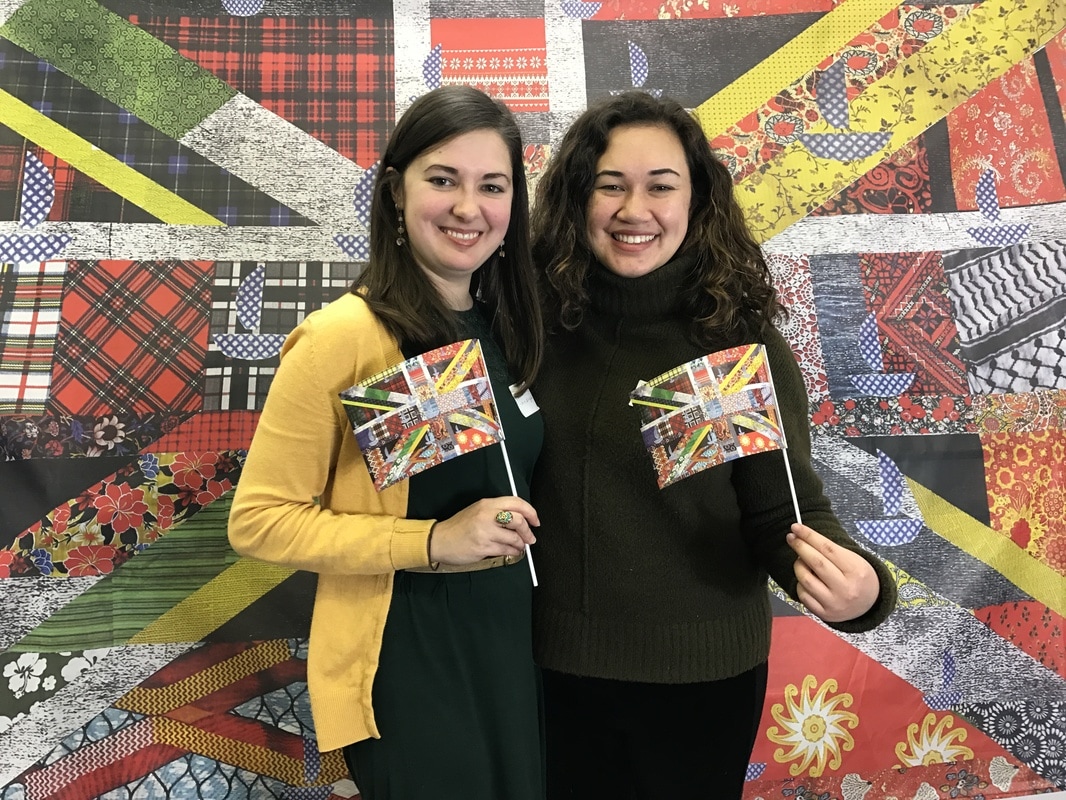
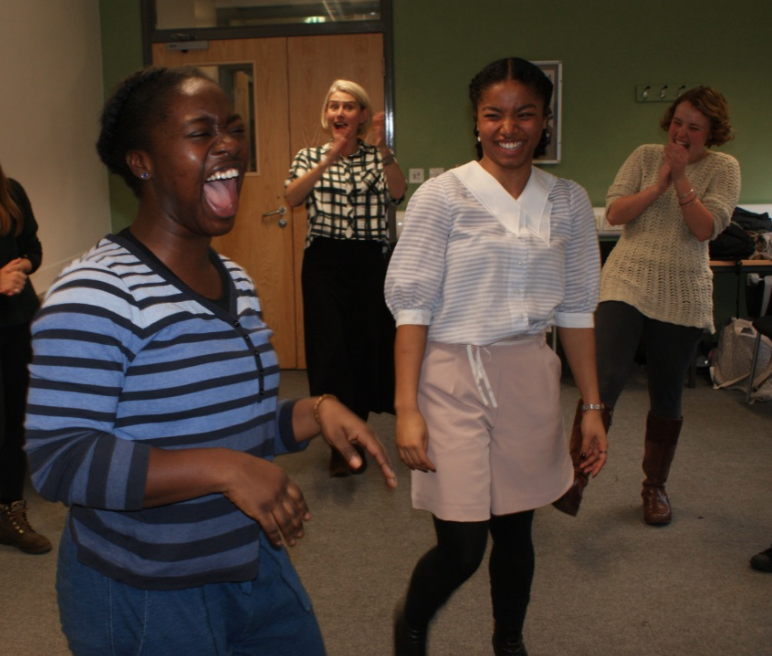
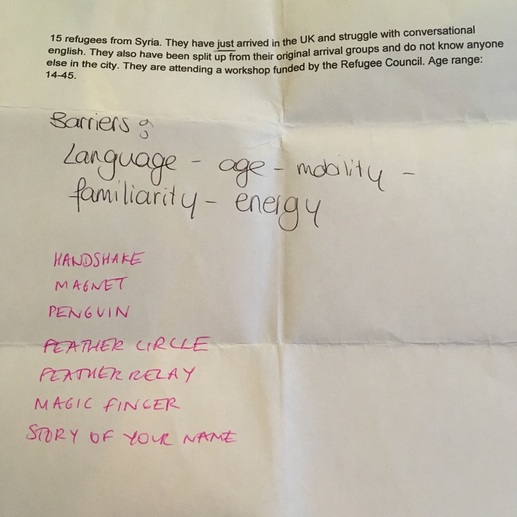
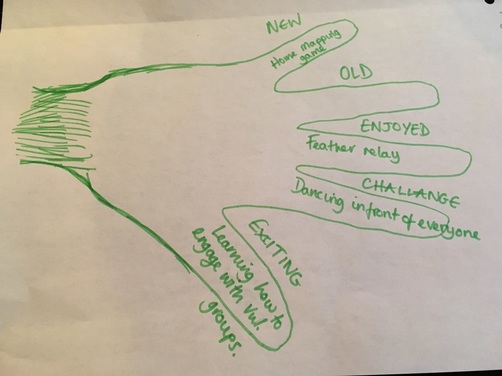
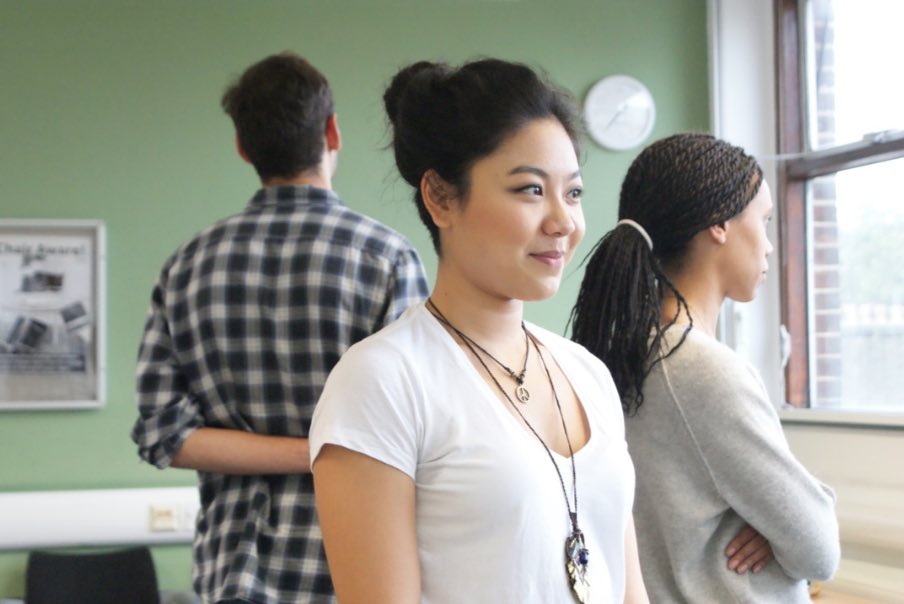
 RSS Feed
RSS Feed
